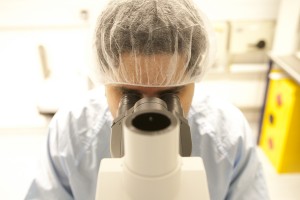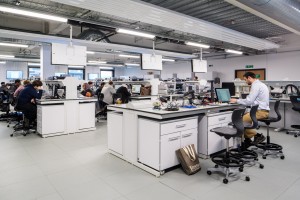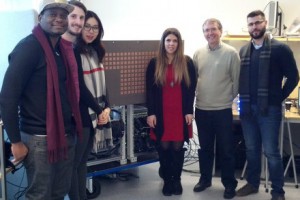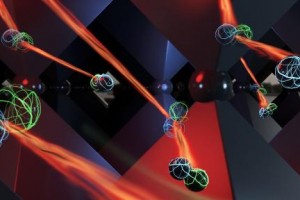A quarter of people polled in research has been commissioned by the EPSRC UK-RAS Network believe that ball-collecting robots at tennis games will exist within the next 10 years. This one one of the quirky findings in the market research which is being released ahead of UK Robotics Week (25 June – 1 July 2016). The use of robots in ...
University Electronics
The latest electronics news from UK universities
Big Bang Fair wants firms to get involved in STEM promo
The Big Bang Fair is looking for companies, education institutions and show organisers to play their part in next year’s Fair, taking place at the NEC in Birmingham, 15-18 March 2017. The Big Bang UK Young Scientists and Engineers Fair brings together the STEM community in a collective effort to inspire over 70,000 young people, their teachers and parents across ...
MOOCs take off in a big way
MOOCs (Massive Open Online Courses), the free programme of study, accessible via mobile, tablet and desktop, is taking off in a big way at the University of Southampton which has just signed up its 200,000th learner. The attraction of MOOCs is that courses can be delivered to large numbers of participants in a way that allows each learner to fit ...
Comment: Brexit must not reduce research funding
Let us hope that the EU referendum in June does not have implications for the funding of research in the UK’s universities and smaller technology companies. Each year UK institutions get a share of hundreds of millions euros from the many EU research programmes. This EU cash is an important, if not vital, source of R&D funding for many universities ...
Rohde & Schwarz forms skills partnership with Swansea University
Rohde & Schwarz has secured the contract with Swansea University to equip the College of Engineering’s electronic teaching laboratories on the Bay Campus. The company has equipped 66 workstations in three labs with oscilloscopes, digital multimeters, power supplies and function generators. The contract was awarded following a European tender process. The total value of test equipment supplied was £800,000. David ...
UK robotics to get summer showcase
UK tech industry will highlight the importance of robotics this summer with a nationwide programme of events for the first ever UK Robotics Week (25 June – 1 July 2016). Events will include open labs, schools and academic competitions and hackathons, and the build-up to UK Robotics Week will begin at the Imperial Festival 2016 on Saturday May 7th and ...
Bristol University drones hunt for minefields
University of Bristol scientists are attempting to speed up the detection of landmines using drone-based sensors. The objective to not to detect individual mines, but to cut the time de-mining teams spend probing empty areas – something known as ‘area reduction’ – by accurately finding the edges of minefields. Area reduction is vital because, according to the University, one person ...
UK researchers make high temperature op amp in SiC
Raytheon UK has collaborated with Newcastle University to produce silicon carbide (SiC) based amplifier circuitry with operational amplifier like characteristics. The research has used the thermal characteristics of SiC not in a high power device, but in small-signal circuitry that can operate in high temperatures. “To date, the focus on Silicon Carbide semiconductors has been power electronics and exploiting the ...
Bristol University researchers claims record spectrum efficiency for 5G
A wireless antenna technology developed at the Universities of Bristol and Lund, could give 5G mobile basestations a 12-fold increase in spectrum efficiency compared with current 4G cellular technology. Multiple antenna technology, referred to as MIMO, is already used in many Wi-Fi routers and 4G cellular phone systems. Normally this involves up to four antennas at a base station. The ...
Perovskite solar cells reveal another advantage
Solar cells made from lead-halide perovskite cells could be improved following the discovery that photons are recycled within them. Perovskites photo-voltaics are new and fast-improving which, according to Imperial College last year, rose in efficiency from less than four per cent in 2009 to over 20 per cent, on par with traditional solar cells. Now a team of researchers from Universities ...
 Electronics Weekly Electronics Design & Components Tech News
Electronics Weekly Electronics Design & Components Tech News








